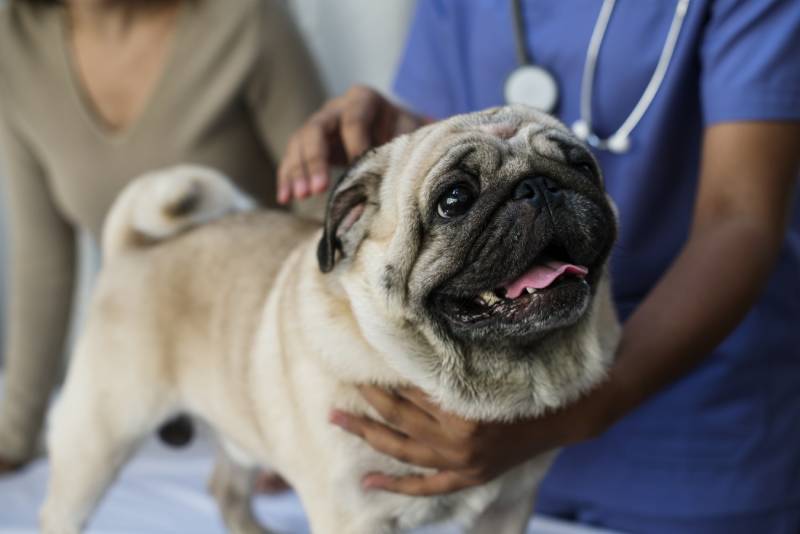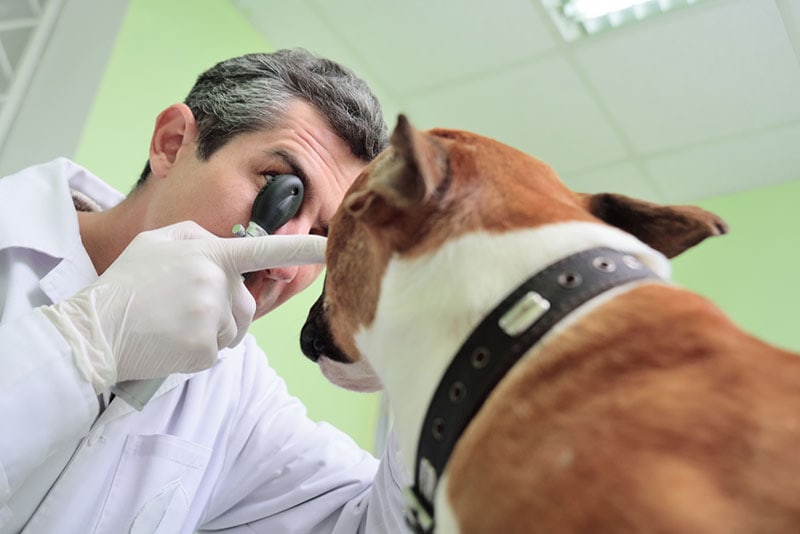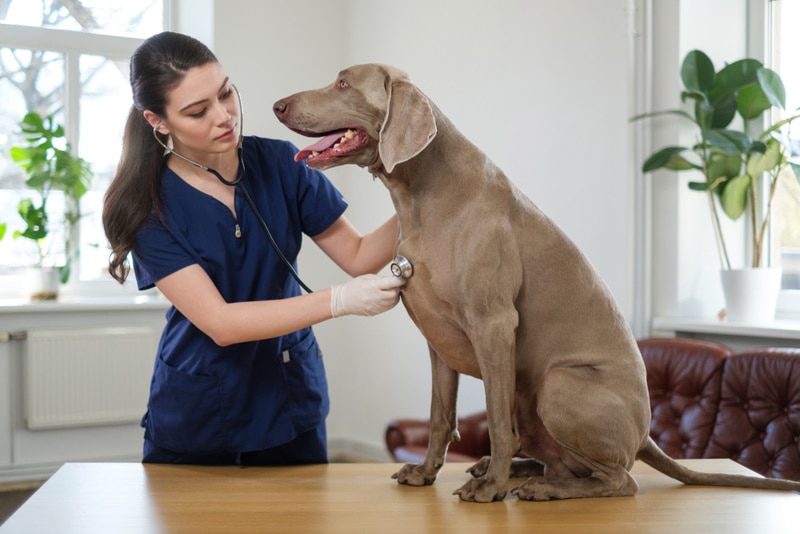Can Dogs Have Down Syndrome? Vet-Reviewed Facts

Updated on

Click to Skip Ahead
Down syndrome occurs when a human is born with an extra chromosome, and you might wonder if it is something your dog can be born with. The simple answer to this question is no; dogs can’t have Down syndrome. However, some genetic and congenital conditions bear similarities to Down syndrome, which means you might recognize some characteristics in your dog, in which case you’ll need to contact your vet.
Can Dogs Have Down Syndrome?
There are obviously differences between a dog’s and a human’s genetics; while dogs have 39 sets of chromosomes, we have 23. Down syndrome occurs when there is a full or partial copy of chromosome 21, but a duplication of this chromosome will have different results in two different species.
Arguably, there are various reasons why we have never seen Down syndrome in dogs. For example:
- The chromosomal abnormalities present in Down syndrome would generally result in premature death in dogs.
- The genetic testing required to identify Down syndrome in dogs hasn’t been done.
- This condition doesn’t exist in dogs.

Conditions That Mimic Down Syndrome
In people with Down syndrome, the extra genetic material can have a wide range of effects. Signs can include cognitive delays, certain physical characteristics and an increased risk of some health issues. Just because we’re not entirely sure that Down syndrome exists in dogs doesn’t mean there aren’t some conditions that bear clinical similarities to it, such as:
- Congenital hydrocephalus
- Congenital hypothyroidism
- Growth hormone deficiency
- Pituitary dwarfism
- Portosystemic shunt
Congenital hypothyroidism, for example, is a rare condition that results in absent or low levels of the thyroid hormone from birth, with signs apparent during your dog’s early life. Affected pups can show a variety of signs including:
- Delay in their ears and eyes opening
- Poor nursing
- Inactivity
- Lack of responsiveness to environmental stimuli
- Cognitive delay
- Poor muscle tone
- Short limbs
- Slow growth, which results in a small stature
If you notice any of these signs in your dog, take them to the veterinarian, where they can run tests to detect health issues and formulate a treatment plan.

Taking Care of a Dog With Additional Needs
Caring for a pet with additional needs might seem overwhelming at first, but there are certain things you can do to ensure that your dog receives the best care to keep them healthy, happy, and safe.
- Choose a high-quality diet: Every dog must receive the proper nutrition, but it’s even more important if your dog suffers from health problems. A high-quality, balanced diet will provide all the nutrients they need to grow, develop, and function.
- Schedule vet visits: Make sure you attend all scheduled vet visits; this might mean you are visiting the vet more than you are used to if you’ve had other, healthier dogs in the past. But frequent checkups will ensure they are healthy and receive the necessary tests and treatments.
- Adjust the environment to fit their needs: It’s your job as a pet parent to create a space for your dog to live that is comfortable, safe, and meets their individual needs. If your dog has developmental or intellectual issues, you might need to modify your home to ensure they can move about the space safely, such as installing gates in front of stairs, moving furniture, and adding ramps near chairs and couches.
Final Thoughts
Dogs can’t have Down syndrome, but they can be born with several other conditions which could display similar signs, such as congenital hydrocephalus and congenital hypothyroidism. Caring for a dog with a disease that affects their mobility and cognitive function requires pet parents to maintain ongoing veterinary appointments and modify their homes to ensure their pets enjoy the highest quality of life. With the proper care and love, dogs with chronic conditions can live happily and comfortably.
Featured Image Credit: Rawpixel.com, Shutterstock













